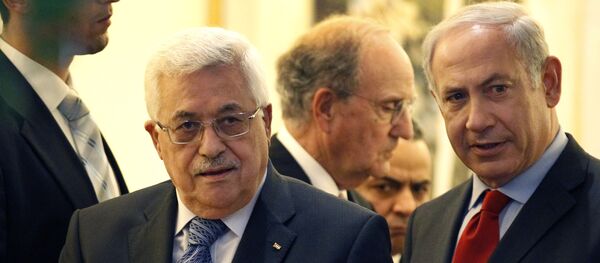Researchers polled 1,200 Palestinians in Gaza and the West Bank and spoke with 900 Israelis over the telephone, and found that 52 percent of Palestinians and 53 percent of Israelis support a two-state solution, a noticeable decrease from 2010 when 57 percent of Palestinians and 71 percent of Israelis supported the idea.
However, 72 percent of Israelis and 71 percent of Palestinians do not think that a two-state solution will come about in the next five years, the Jerusalem Post reported.
The study also noted that support for a two-state solution varies based on where participants placed themselves on the political spectrum. Some 88 percent of people on the left supported the idea, along with 83 percent of people on the moderate left, 59 percent of centrists, 26 percent of people on the moderate right and only 10 percent of people on the right.
These results could be seen as disheartening, according to Dr. Khalil Shikaki and Dr. Dahlia Scheindlin, head researchers of the report, entitled "Palestinian-Israeli Pulse: A Joint Poll," though they say leadership in both countries could reverse this trend.
"We show why [support for the peace process] is declining and going in the wrong way," Shikaki said. "We are saying there is another reality. Dig deeper, you can find things."
Scheindlin pointed out that the two-state solution was more popular in the late 1990s and into the mid-2000s, after the Oslo Accords and through the Second Intifada, prompting then-Israeli prime ministers Ehud Barak and Ariel Sharon to support the idea.
"It is easy for policy makers to look at [the study’s results] and say, 'We can coast because the public isn’t demanding that we move ahead on this,'" she suggested. "But if they were to show political leadership, if they had vision, they could get the public to support them."
Despite this somewhat grim outlook, 45 percent of Palestinians and Israeli Jews still prefer for the next development in the peace process to be a peace agreement.
The poll used funding from the European Union and the Netherlands Representative Office in Ramallah and was sponsored by Tel Aviv University’s Tami Steinmetz Center for Peace Research and the Palestinian Center for Policy and Survey Research in Ramallah.
It was conducted before the start of the Temple Mount crisis, which began after two Israeli border police officers were shot and killed near the holy site earlier in July.






